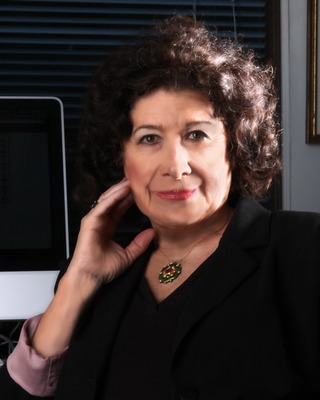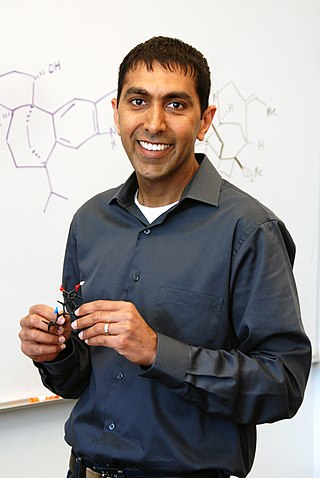Related Research Articles

Ira Remsen was an American chemist who introduced organic chemistry research and education in the United States along the lines of German universities where he received his early training. He was the first professor of chemistry and the second president of Johns Hopkins University. He founded the American Chemical Journal, which he edited from 1879 to 1914. The discovery of Saccharine was made in his laboratory by Constantine Fahlberg who worked in collaboration with Remsen but patented the synthesis on his own, earning the ire of Remsen.

Manipal Institute of Technology is a private engineering college under Manipal Academy of Higher Education in India.

Chemistry education is the study of teaching and learning chemistry. It is one subset of STEM education or discipline-based education research (DBER). Topics in chemistry education include understanding how students learn chemistry and determining the most efficient methods to teach chemistry. There is a constant need to improve chemistry curricula and learning outcomes based on findings of chemistry education research (CER). Chemistry education can be improved by changing teaching methods and providing appropriate training to chemistry instructors, within many modes, including classroom lectures, demonstrations, and laboratory activities.

George McClelland Whitesides is an American chemist and professor of chemistry at Harvard University. He is best known for his work in the areas of nuclear magnetic resonance spectroscopy, organometallic chemistry, molecular self-assembly, soft lithography, microfabrication, microfluidics, and nanotechnology. A prolific author and patent holder who has received many awards, he received the highest Hirsch index rating of all living chemists in 2011.

Esther Marley Conwell was a pioneering American chemist and physicist, best known for the Conwell-Weisskopf theory that describes how electrons travel through semiconductors, a breakthrough that helped revolutionize modern computing. During her life, she was described as one of the most important women in science.
Edward Bruce Burger is an American mathematician and President Emeritus of Southwestern University in Georgetown, Texas. Previously, he was the Francis Christopher Oakley Third Century Professor of Mathematics at Williams College, and the Robert Foster Cherry Professor for Great Teaching at Baylor University. He also had been named to a single-year-appointment as vice provost of strategic educational initiatives at Baylor University in February 2011. He currently serves as the president and CEO of St. David's Foundation.

Neal Russell Amundson was an American chemical engineer and applied mathematician. He was the chair of the department of chemical engineering at the University of Minnesota for over 25 years. Later, he was the Cullen Professor of Chemical & Biomolecular Engineering and Mathematics at the University of Houston. Amundson was considered one of the most prominent chemical engineering educators and researchers in the United States. The Chemical Engineering and Materials Science building at the University of Minnesota-Twin Cities bears his name.
Alexandre Felske Tadayuki Yokochi is a Portuguese-born former swimmer. He now resides in the United States and works as a professor of mechanical engineering at Baylor University.

Peter John Stang is an American chemist and Distinguished Professor of chemistry at the University of Utah. He was the editor-in-chief of the Journal of the American Chemical Society from 2002 to 2020.
The UCL Faculty of Engineering Sciences is one of the 11 constituent faculties of University College London (UCL). The Faculty, the UCL Faculty of Mathematical and Physical Sciences and the UCL Faculty of the Built Envirornment together form the UCL School of the Built Environment, Engineering and Mathematical and Physical Sciences.
The Presidential Young Investigator Award(PYI) was awarded by the National Science Foundation of the United States Federal Government. The program operated from 1984 to 1991, and was replaced by the NSF Young Investigator (NYI) Awards and Presidential Faculty Fellows (PFF) program. In 1995, the NSF Young Investigator program was subsumed into the NSF CAREER Awards program, and in 1996, the Presidential Faculty Fellows program was replaced by the PECASE program.
John Michael Prausnitz is an emeritus professor of chemical engineering at the University of California, Berkeley.

Zafra M. Lerman is an American chemist, educator, and humanitarian. She is the President of the Malta Conferences Foundation, which aims to promote peace by bringing together scientists from otherwise hostile countries to discuss science and foster international scientific and technical collaboration. From 1986 to 2010, she chaired the American Chemical Society's Subcommittee on Scientific Freedom and Human Rights. She has been successful in preventing executions, releasing prisoners of conscience from jail and bringing dissidents to freedom. She is the recipient of many awards for education and science diplomacy, including the 1999 Presidential Award from U.S. President Clinton, the 2005 Nyholm Prize for Education from the Royal Society of Chemistry (England), the 2015 Science Diplomacy Award from the American Association for the Advancement of Science (AAAS), the 2016 Andrei Sakharov Award for human rights from the American Physical Society (APS), the 2016 United Nations NOVUS Award for the 16th Sustainable Development Goal: Peace and Justice, and the 2017 International Union of Pure and Applied Chemistry Distinguished Women in Chemistry or Chemical Engineering Award.
Meera Chandrasekhar, is a Curators’ Teaching of Physics and Astronomy at the University of Missouri, United States. She is the recipient of the 2014 Baylor University's Robert Foster Cherry Award for Great Teaching. Her research focuses on optical spectroscopy of semiconductors and superconductors under pressure. Meera has also developed several hands-on physics programs for students in grades 5–12, and summer institutes for K-12 teachers.

The Department of Chemistry is responsible for chemistry teaching and research at Imperial College London.

The Malawi University of Science and Technology (MUST) is a public university in Thyolo in South Malawi. It was established on 17 December 2012. MUST opened doors in March 2014, the first undergraduate programmes were: 1. Metallurgy and Materials Engineering 2. Chemical Engineering 3. Biomedical Engineering

Neil K. Garg is currently a Distinguished professor of chemistry and holds the Kenneth N. Trueblood Endowed Chair at the University of California, Los Angeles.

The University College of Science, Technology and Agriculture are two of five main campuses of the University of Calcutta (CU). The college served as the cradle of Indian sciences by winning the Nobel Prize in Physics in 1930 and many fellowships of the Royal Society London.
Mary Virginia Orna is an American color chemist, historian of science, and professor emerita of the College of New Rochelle. Orna received the 2021 HIST Award for Outstanding Achievement in the History of Chemistry from the American Chemical Society's Division of the History of Chemistry (HIST) “for her exemplary leadership in the worldwide community of the history of chemistry, especially for her original research in the area of color and pigment chemistry and the discovery of the elements, her commitment to education, her decades of service to the Division of History of Chemistry, and her continuing role in supporting and participating in the worldwide research in the archeology of chemistry.”
Michelle (Mikki) Rae Hebl is an applied psychologist whose research focuses on workplace discrimination and barriers experienced by stigmatized individuals. She is the Martha and Henry Malcolm Lovett Professor of Psychological Sciences at Rice University and affiliated with the Jones Graduate School of Business.
References
- ↑ Baylor University. "Baylor Cherry Award" . Retrieved 18 August 2018.
- ↑ Funds for NGOs (24 April 2012). "Robert Foster Cherry Award" . Retrieved 18 August 2018.
- ↑ "2020 Award Recipient". Robert Foster Cherry Award | Baylor University. Retrieved 2020-11-09.
- ↑ Baylor University (30 March 2017). "Finalists Selected for Baylor's $250,000 Robert Foster Cherry Award for Great Teaching" . Retrieved 18 August 2018.
- ↑ Chemical & Engineering News. "Chemical & Engineering News: Neil Garg Wins Robert Foster Cherry Award for Great Teaching" . Retrieved 18 August 2018.
- ↑ Association for Psychological Science (4 February 2016). "Hebl Wins Top Teaching Award". Aps Observer. 29. Retrieved 2 November 2018.
- ↑ Rice University. "Hebl Wins National Teaching Award" . Retrieved 2 November 2018.
- ↑ University of Missouri. "Prof. Meera Chandrasekhar Wins the Robert Foster Cherry Award for Great Teaching" . Retrieved 2 November 2018.
- ↑ University of Michigan (13 January 2012). "U-M's Brian Coppola Wins National Teaching Award" . Retrieved 2 November 2018.
- ↑ Chemical & Engineering News. "Brian Coppola:Award-Winning Professor Uses Storytelling to Engage Students Learning Organic Chemistry" . Retrieved 18 August 2018.
- ↑ American Mathematical Society. "Burger Wins Baylor University's Cherry Award for Great Teaching" . Retrieved 18 August 2018.